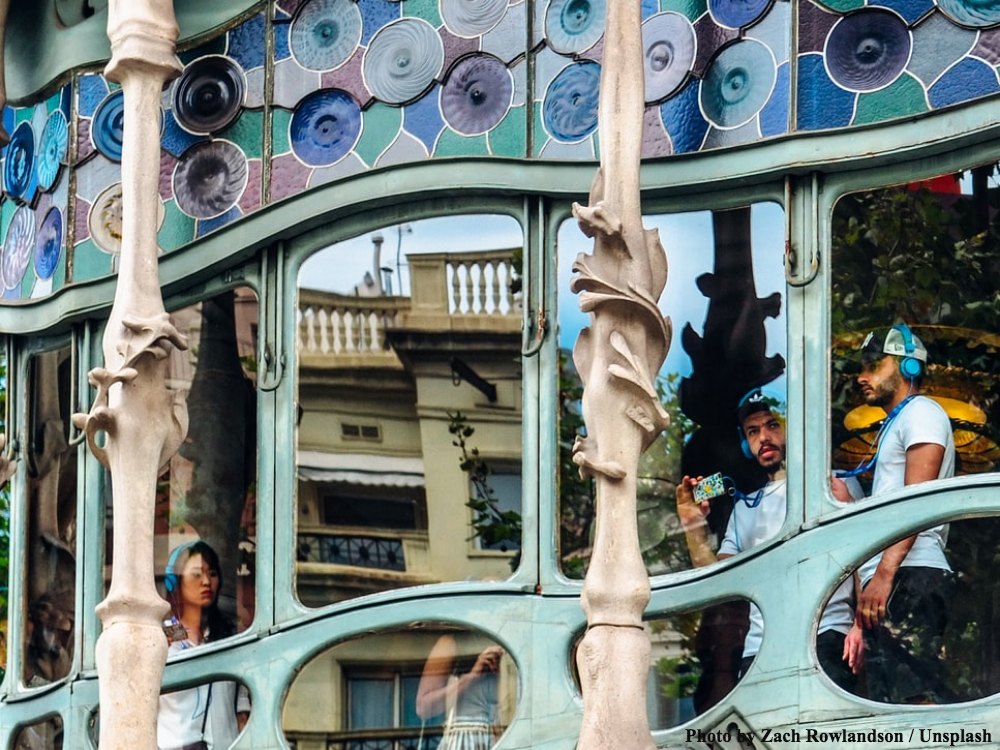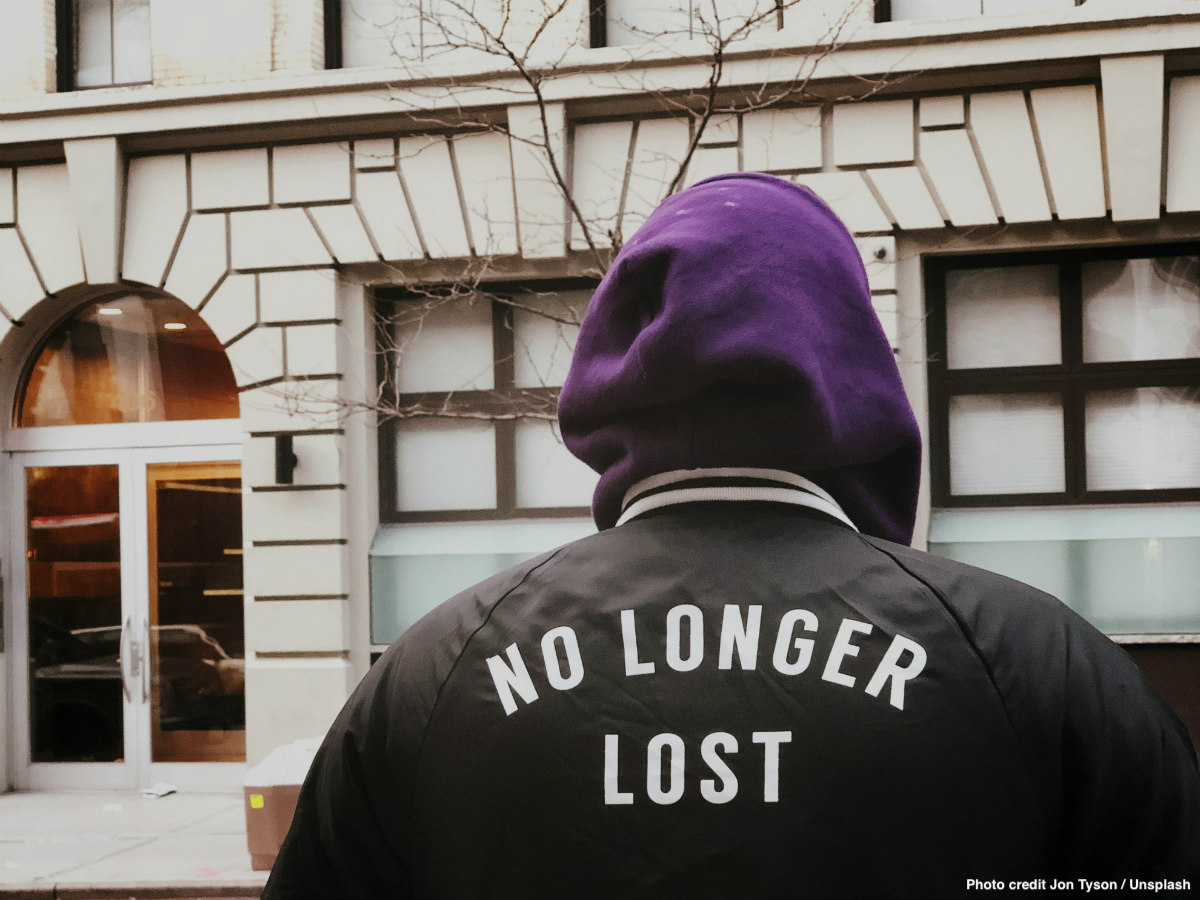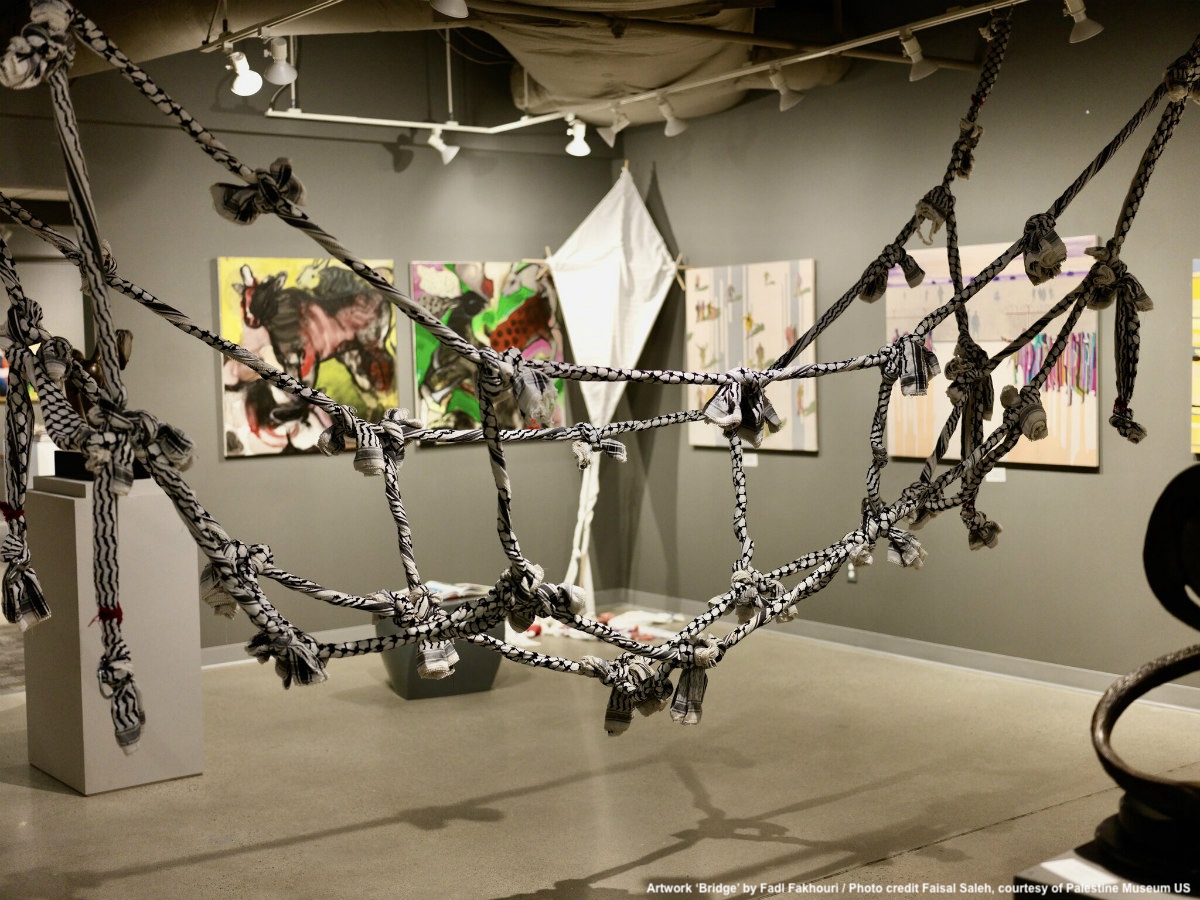La Boquería market in La Rambla de Barcelona offers these days an image of its infancy. Its allies are relatively busy mainly with locals. The city is empty by Barcelona standards with little tourists in sight. Due to the pandemic the hospitality sector faces an unprecedented economic crisis. But this downturn might present an opportunity to look into the ‘ethical’ dimension of tourism and social justice and transform it for good.
According to a study the tourism sector in Spain employs, directly or indirectly, 1.4 million people, of which almost 400,000 work in hotels and almost four out of ten are staff. Overwhelmingly immigrant women working as chambermaids – whose income is often a fundamental sustenance in family economies – have been hardest hit by the pandemic because of their exposure to precarious temporary contracts.
The hospitality sector presents structural vulnerabilities that female immigrant workers have brought to light, long before the first outbreak. The virus has proved their arguments right. The pandemic has just aggravated a worker’s situation that has been deteriorating over the years.
Who are ‘Las Kellys’?
In 2014 a group of chambermaids in Barcelona began to connect via social media to voice their work situation. At first it functioned like a therapy group to share advice and experiences but soon it became a popular tool to share relevant information. Their name Las Kellys comes from a phonetical play on words in Spanish (las que limpian, the one who cleans, in English).
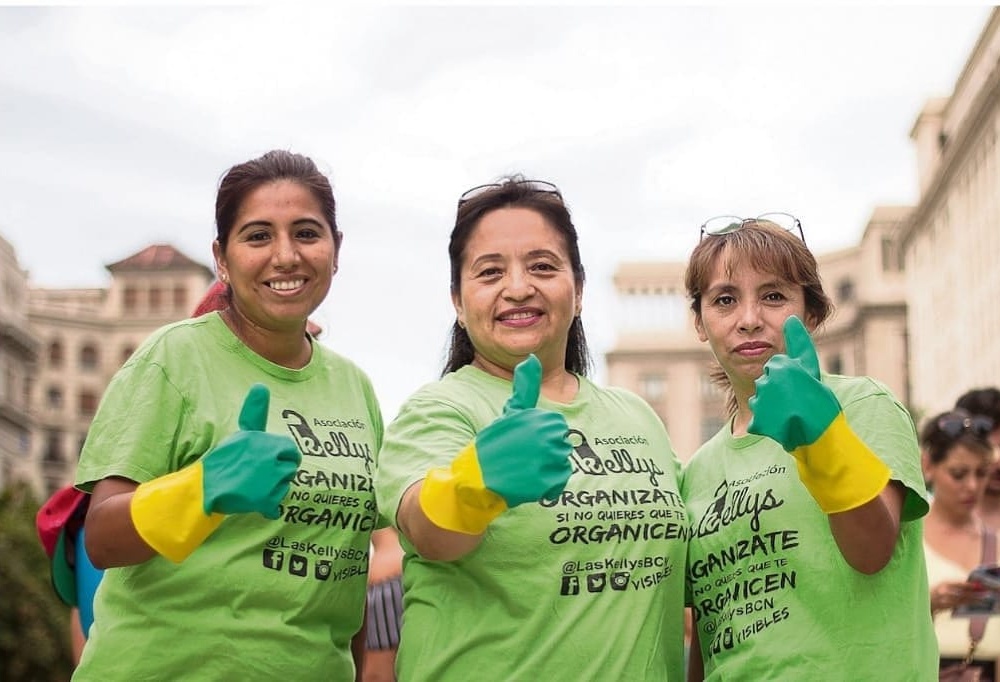
‘Some wanted to take a step further and began to meet. Throughout 2015 we went from venting through the internet to self-organization in Barcelona and in other tourist destinations in Spain’, explains Vania Arana, spokeswoman and president of Las Kellys.
In 2016 they officially founded Las Kellys Association in Barcelona to fight the indiscriminate outsourcing of chambermaids by hotels instead of putting them on the payroll as staff.
‘When hotels subcontract chambermaids, they pay them around forty percent less than the regular salary per hour, ending up with a salary of approximately 700 Euros per month. Also the amount of rooms they clean in eight hours increases around 30%. During the high season, the work overload is even worse’, claims Arana.
‘We realized that by uniting over personal political preferences or union affiliations, the debate about our employment situation became much more public. In fact the patriarchal mentality of the mainstream unions, represented mainly by men, has been one of the obstacles to address our expectations’.
Impact policy to reduce inequality
Las Kellys was determined to become an independent women’s labour union, even if they don’t receive any external economic support or public subsidies. Since its creation, they have spent months of hard work and have carried out actions of denunciation, mobilizations, and diffusion of their employment and social situation.
Several courts granted our complaints and considered outsourcing unlawful on procedural grounds. They declared that we, chambermaids, are an essential part of hotels’ operating business as we made 30% of the staff.
In addition, the claims of Las Kellys have reached the Chamber of Congress in Spain and the European Parliament to pass a legislation to prohibit staff outsourcing, to control the work overload and to supervise through effective inspections that hotels comply with the law. The result was Article 42 of the so-called ‘Kelly Law’ approved in 2018.

However, when the first outbreak hit cities and hotels had to close their doors, they didn’t hesitate to leave most chambermaids on the street without any right to ERTE (temporary employment regulation program by the Spanish State), simply because they were not employed as stipulated. Hotels are not complying with the law.
Promoting ethical tourism for the progress of society
Most hotels communicate their commitment to sustainable tourism by implementing environmental and corporate social responsibility practices, however the term has become an empty slogan. With the hotel occupancy booming in Barcelona, hotels saw the opportunity to generate as much profit as possible by masterminding outsourcing companies to shift their staff and subcontract them back.
They act like a facade with anyone to turn to if you have some request. You become a slave of this century, claims Arana.
The ongoing debate among city officials in Barcelona to promote fair tourism is often redirected to illegal apartment rental. But the negative impacts of mass tourism are much more intertwined in Barcelona’s society causing poverty and human exploitation.
Las Kellys has opened a Pandora’s box. Their approach to make themselves visible in a more empathetic way has made us all realize the human face behind the hospitality sector, leading to a profound reflection on tourism and its contribution to the development of a city.
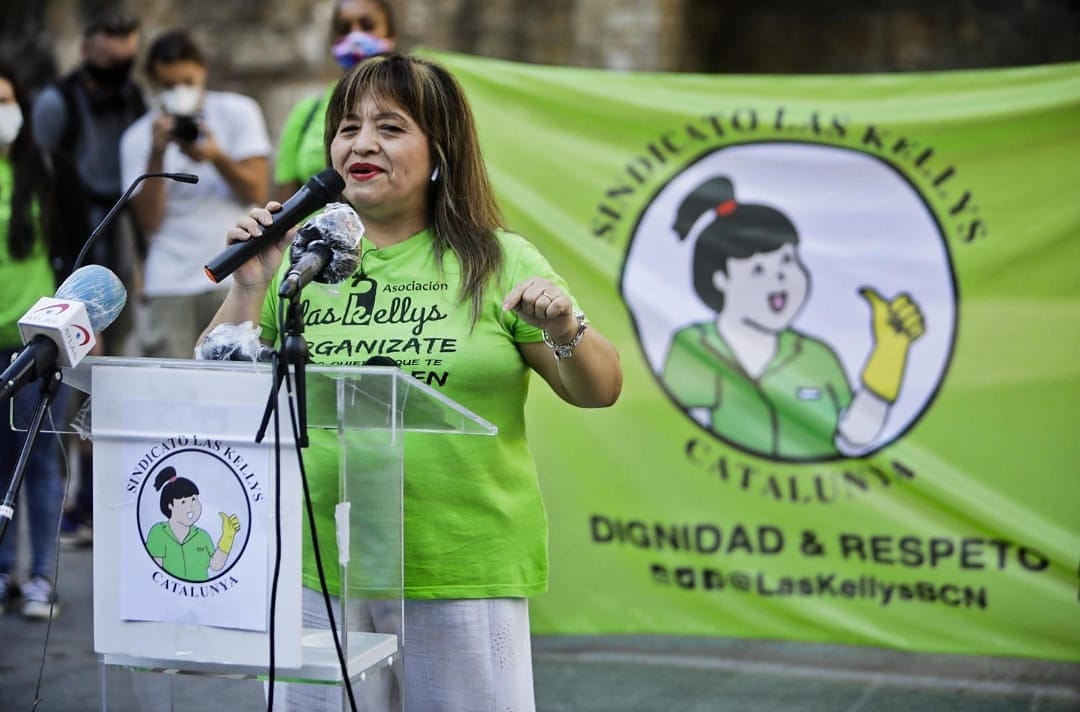
According to the official definition given by the World Tourism Organisation, sustainable tourism is the “tourism that takes full account of its current and future economic, social and environmental impacts, addressing the needs of visitors, the industry, the environment and host communities”.
However, other concepts such as ethical tourism have recently flourished as a tool to promote economic and social benefits for the locals and spread human values and social justice in tourism.
An opportunity for more cohesive and equitable societies
Although travellers often don’t realize the human dimension of their stay, tourists themselves can be real change makers at their destinations. It is about community commitment and tourists’ sense of responsibility in terms of economic and social justice. Namely, responsible tourism allows the community where hotels operate to thrive and redefine their own identities, also in relation with their social sense of place and belonging. Under these premises citizens see tourists as allies rather than as enemies congesting their cities.

In this spirit, Las Kellys has demanded a “quality of employment” seal to be displayed at hotels, which certifies that employees are fairly treated with reasonable pay. A certification like that strengthens the impact and effectiveness of the policy.
A good reference is the initiative of Addiopizzo in Palermo, where social cohesion defies the Mafia to fight against organized crime. Local businesses proudly display a seal to guarantee customers that they refuse to pay extortion money to the Mafia.
‘We are still waiting for the city administration to implement this certification at hotels. But we don’t see any willing to make it happen. In fact, the Departament de Treball (Labour Department of Catalonia) has put the Article 42 on hold, although it was passed by the Parliament two years ago’, says Arana.
Despite working in a sector that generated US $ 147,000 million in 2019 – 11% of the Spanish economy – around 90,000 hotel chambermaids are jobless and only some of them received unemployment compensation for a couple of months.
Social justice in tourism
What started as a therapy group in Barcelona is now a movement that spans to other touristic cities in Spain. Las Kellys has filed more than 30 complaints to the Labour Inspection for breach of agreement by hotel chains and external companies and more than 15 complaints in the courts for violating labour rights and breaking the law. It has also carried out a dozen protest mobilizations in front of hotels that don’t comply with the law.
Barcelona’s official website to promote fair tourism with regards to legal accomodation reads ‘enjoying a travel experience which is personally rewarding, as well as respectful to the local population, also depends on the visitors themselves’. But are hotels doing their part?
When hotels open their doors again and Barcelona starts receiving visitors, it is in our hands to wisely choose a stay which leaves a positive mark on the city. Social justice starts simply by getting our foot through a hotel’s door.
